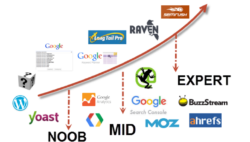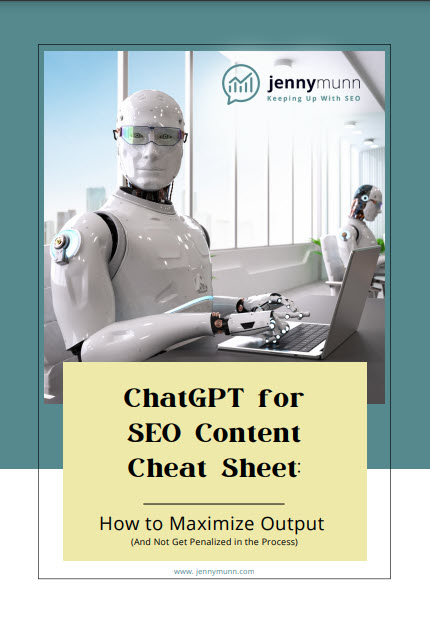Ahead of a WordCamp Atlanta SEO presentation I did earlier this year, I was reflecting on how to best speak about SEO to an audience that vacillated widely between “beginner” and “advanced” levels.
As speakers on any digital marketing topics can attest to, it’s difficult to strike a balance between being over people’s heads who are new to SEO with not being too elementary and disappointing those more advanced.
And because the talk was in the ballroom and has historically drawn a lot of people, I knew we’d have a wide spectrum of SEO experience and knowledge. So I decided to put it out there an address it early on with a visual (in true Jenny style) so individuals can assess where they are and how to apply the tips to their level of knowledge.
The SEO Skill Level Spectrum: Breaking It Down
Anyone can teach themselves SEO. After all, it’s not rocket science. But unless you maintain consistent experience keeping the dirt under your fingernails and keeping up with recent trends and nuances, you’ll only advance so far. Where do you fall in this spectrum?
NOOB/Beginner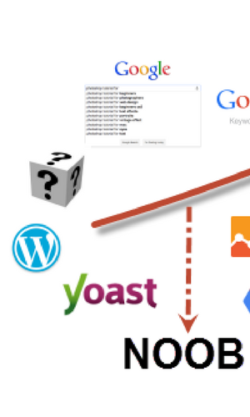
Let’s break “SEO beginner” down even further.
- Beginner/Beginner. If you’re at this stage, you know next to nothing. Everything about SEO is intimidating. You’re just learning what the acronym stands for, and the term “title tag” is scary. SEO is a necessary evil but one you’re reconciled to.
- Advanced Beginner – you have Yoast on your website (or other SEO functionality) and you are filling something into the “Focus Keyword” field as you’re attempting on-page optimization. You might be typing in a term that is not a real keyword, but you’re making the purposeful attempt. You, or your web designer, has set up Google Analytics for your site although at this stage you’re not using it overly much.
Mid-Level
In this next phase, it’s starting to become more natural to think about SEO and incorporate it into your marketing routine.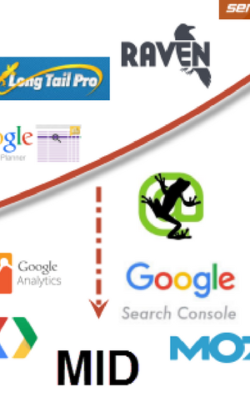
- Beginner Intermediate: you agonize over the little green lights in Yoast, but you’re getting the hang of it. You’re embracing more SEO terms (although you’re not quite ready for “canonical” or “schema” yet) and are starting to google your questions and search for help as you struggle through this tough part of the learning curve. You begin to accelerate here when you start using a formal keyword research tool, like Google’s Keyword Planner, and are looking at the data behind keywords.
- Advanced Mid-Level: now, you’re almost fully entrenched in the world of SEO. You’re starting to use SEO tools (free or paid), like Moz, Raven, or Long Tail Pro, and Screaming Frog or another crawler. You have Google Search Console integrated with your site and know how to make your way around the reports.
Expert
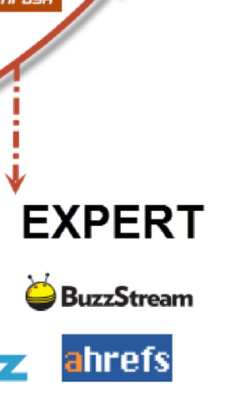 At the advanced level, you take the Noob and Mid-Level and add to it. You can pat yourself on the back for having come such a long way in your journey thus far, and settle in knowing that it’s smooth sailing from here on out, right? Well, not quite as it turns out.
At the advanced level, you take the Noob and Mid-Level and add to it. You can pat yourself on the back for having come such a long way in your journey thus far, and settle in knowing that it’s smooth sailing from here on out, right? Well, not quite as it turns out.
- Beginner Expert: At this stage, you’re confident you know almost everything about SEO. Or at least, you can figure it out. You may not have all of the answers, but you can get to an educated answer quickly. You’re part of SEO forums or groups, and are using more advanced SEO tools. Google Search Console is your BFF.
- Advanced Expert: When you reach this level, you realize that everyone’s making things up. You become enlightened in the fact that you will be a student of SEO for life and you may go back down this spectrum of skills as SEO evolves and the changes may not stay in your grasp. You realize that you can stay a keyword research expert in one area, but regress to a linkbuilding “intermediate beginner” because you haven’t built links in a few years in a scalable, white-hat manner.
Wherever you fall in this spectrum, know that SEO is a journey you’ll be on forever. You’re welcome. 🙂
Jenny Munn
Latest posts by Jenny Munn (see all)
- Four 2024 SEO Planning Tips for World Domination - November 16, 2023
- SEO Planning Tip: Why You Need a CYA Clause - November 3, 2023
- How Long Does SEO Take to Show Results? (Updated for 2023) - August 9, 2023

